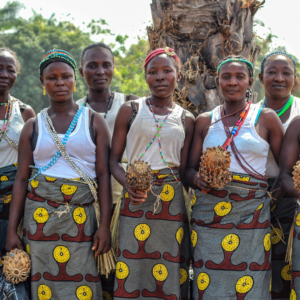In Sub-Saharan Africa, over 80 percent of women are self-employed, managing businesses that range from family farms and market stalls to tech start-ups and film production. At the high-level event Capital to Scale: Supporting Women Entrepreneurs as Job Creators, held during the World Bank-IMF Annual Meetings in Washington, DC, experts discussed how access to capital could enable women-led businesses to expand, create jobs, and significantly impact the global economy. The discussion emphasized moving beyond survival entrepreneurship toward sustainable growth that empowers families, communities, and nations.
Anshula Kant, Managing Director and World Bank Group CFO, highlighted the World Bank Group’s goal to reach 80 million women and women-led businesses with capital by 2030. Mariana Costa, Co-Founder of Laboratoria, stressed that despite the talent women demonstrate, barriers such as care responsibilities and investor skepticism continue to limit their opportunities. Costa argued that without women shaping markets and tools, broader efforts to support women entrepreneurs would fall short.
Governor Jameel Ahmad of the State Bank of Pakistan shared his country’s success in advancing women’s financial inclusion, noting that female bank accounts rose from 20 million in 2021 to 37 million in 2025 through initiatives like the Banking on Equality strategy. By joining the WE Finance Code, Pakistan strengthened women’s access to capital through data collection, leadership commitment, and innovative financial solutions. Ahmad emphasized that beyond banking services, addressing capacity building and financial literacy among women was key to enabling sustainable entrepreneurship.
Charlotte Keenan of Goldman Sachs’s 10,000 Women program explained that comprehensive support—including policy reform, capital, training, mentorship, and networks—is necessary for women entrepreneurs to thrive. The Women Entrepreneurs Opportunity Facility (WEOF), launched in 2014 by IFC and 10,000 Women, has provided loans to 267,000 women and mobilized $3 billion in capital, resulting in the creation of over 50,000 jobs. Keenan emphasized that financial products tailored to women’s realities, coupled with advisory support and peer networks, are critical for converting access to capital into durable business growth.
Jeremy Awori, CEO of Ecobank Transnational, underscored the importance of mentorship, access to capital, and building credit histories for women entrepreneurs. Many women in Africa run cash-based businesses, limiting their ability to establish financial records. Awori noted that even small financial transactions can help build a foundation for scalable access to capital, enabling women to grow their businesses and create jobs.
Jasmina Selimović, Governor of the Central Bank of Bosnia and Herzegovina, highlighted the role of central banks in supporting women entrepreneurs. Survey data revealed that women-owned SMEs in Bosnia and Herzegovina represent only 20 percent of the market but account for just 11 percent of non-performing loans, demonstrating that women-led businesses are lower risk yet underrepresented. Selimović emphasized that investing in women is not only about gender equality but also about building a more productive economy.
The event concluded with moderator Nozipho Tshabalala stressing that capital alone is not enough. She highlighted the need for urgent, intentional action combining financing, mentorship, capacity building, visibility, and evidence-based policies to drive meaningful impact for women entrepreneurs and the broader economy.







